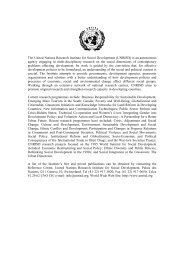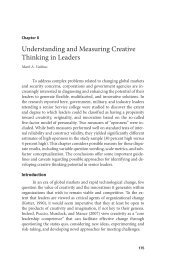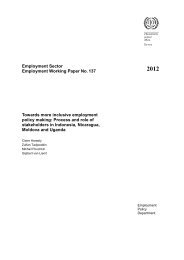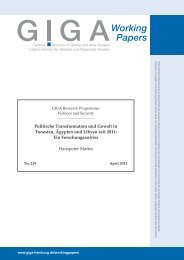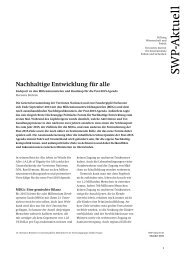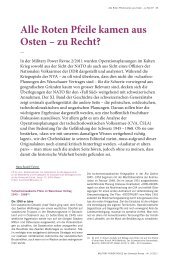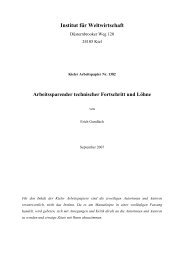Global Jihad: temi, piste di diffusione e il fenomeno del reducismo ...
Global Jihad: temi, piste di diffusione e il fenomeno del reducismo ...
Global Jihad: temi, piste di diffusione e il fenomeno del reducismo ...
Create successful ePaper yourself
Turn your PDF publications into a flip-book with our unique Google optimized e-Paper software.
experienced under various Arab regimes, which created a camp of Islamist refugees<br />
who could no longer act in their homelands. In one sense, then, they were forced to<br />
pursue the new route of global terrorism. When they lost Afghanistan in December<br />
2001, they moved to Iraq in 2003, and started the intensive indoctrination through the<br />
Internet since then, in the rest of the Arab and Muslim world.<br />
This global phenomenon has been exacerbated by a relatively old process, one that<br />
actually accelerates in the coming years: the ra<strong>di</strong>calization of Muslim, primar<strong>il</strong>y Arab<br />
immigrants in the West. This process is largely a consequence of the alienation that<br />
many second- and third-generation Muslim immigrants feel within Western<br />
societies, whether due to irreconc<strong>il</strong>able values, quashed expectations, or other<br />
factors. One result of this process has been the rapid development of an Islamic<br />
activist infrastructure within Western democracies, such that any number of<br />
organizations in Europe and the United States could serve as the logistical and<br />
financial backbone of Islamist terrorist groups.<br />
This problem of social alienation among younger Muslims merits a study of its own.<br />
In short, though, any solution w<strong>il</strong>l require a better understan<strong>di</strong>ng in the West of the<br />
roots of Islamist violence as part of the culture of global jihad. The antiterrorism steps<br />
currently being taken by the United States and other Western countries—such as new<br />
legislation, better cooperation in the intelligence field, encouragement of<br />
counterterrorism efforts by Arab and Muslim states, and extra<strong>di</strong>tion of arrested<br />
terrorists—are all important. Yet, these measures do not address the fundamental<br />
causes of the problem, and may even enhance the notion that the Islamist struggle is<br />
an ideological global clash between civ<strong>il</strong>izations.<br />
The September 11 attacks and the war against Islamist terrorism pave the way for<br />
new ideological interpretations among <strong>Jihad</strong>i scholars, clerics, and groups, and<br />
produce new methods of dealing with the facts in light of Islamic constants. Islamist<br />
groups and Muslim intellectuals that determine this new vision publish fresh stu<strong>di</strong>es<br />
and <strong>di</strong>ssertations. Formerly, the general vision and intellectual <strong>di</strong>ssertations by<br />
Islamist groups were limited in scope to their regional problems. For example, the<br />
103





